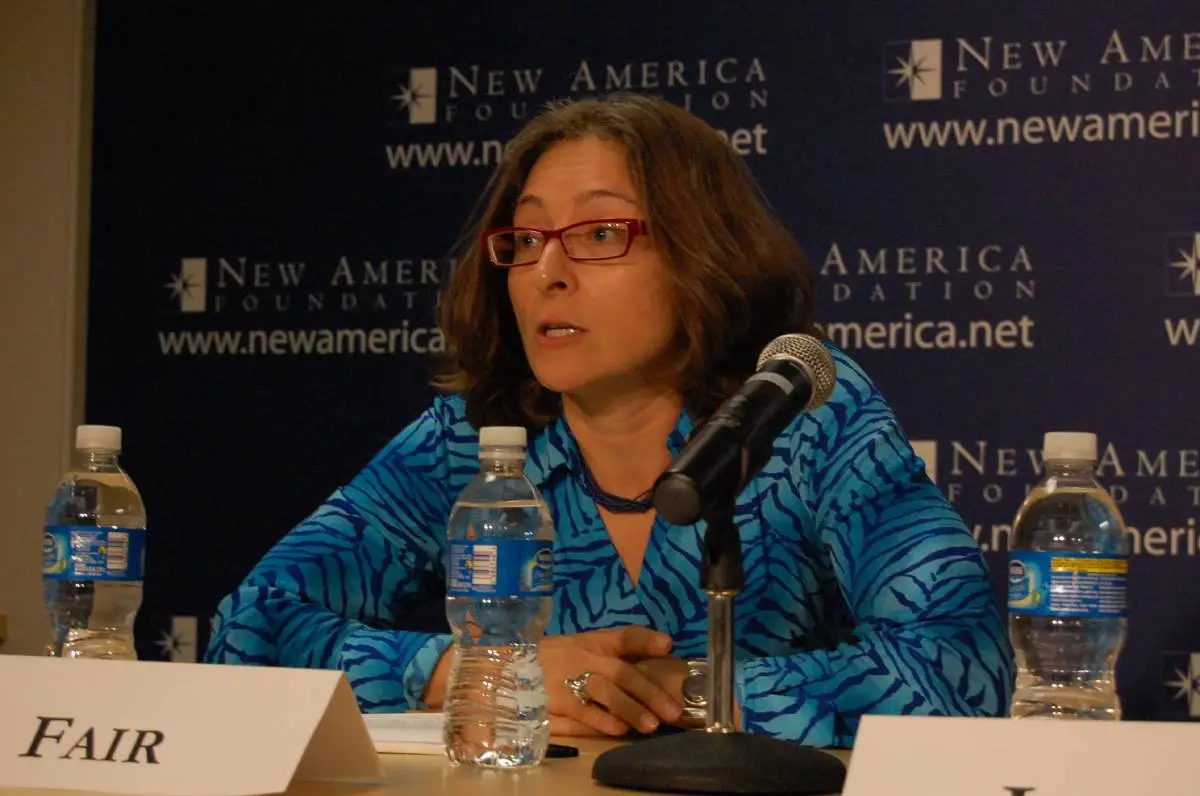Foreign Policy Magazine: Another Clash Coming, And Pak’s Generals Want It That Way
Photo: Wikipedia
India-West News Desk
WASHINGTON, DC – In an opinion piece published in Foreign Policy on May 16, C. Christine Fair, a professor in Georgetown University’s security studies program, warns that another conflict between India and Pakistan over Kashmir is not just possible—it is inevitable. Fair argues that the Pakistani military’s very survival depends on sustaining this conflict, creating a cycle of provocation, escalation, and global anxiety.
According to Fair who is at the university’s security studies program within the Edmund A. Walsh School of Foreign Service, the Pakistani Army has entrenched itself as the country’s most powerful institution by portraying India—and specifically, the dispute over Kashmir—as an existential threat. “Ideologically and materially, the Pakistani Army needs this conflict with India to survive,” she writes. “While most countries have armies, in Pakistan, the army has a country.”
Since the partition of British India in 1947, Pakistan has claimed Kashmir as unfinished business. Kashmir, the only Muslim-majority province not to join Pakistan, has long been embedded in the national psyche and the military’s strategic doctrine. As Fair explains, “Kashmir is a lodestone in the grand strategy of the Pakistani Army,” and the narrative that the region rightfully belongs to Pakistan is widely accepted among both elites and ordinary citizens.
This enduring belief has translated into a history of both direct military engagements and covert operations. From Pakistan’s use of tribal militias in 1947 to the brazen Kargil incursion in 1999 and the Mumbai terror attacks in 2008, Islamabad has often relied on nonstate actors to strike Indian targets. These actions are carefully calculated, Fair argues, to avoid full-scale war while still demonstrating the Army’s ability to “bleed India” and sustain unrest in Kashmir.
The result is a dangerous and destabilizing balance: while neither India nor Pakistan can afford a protracted war—particularly given their nuclear capabilities—each new skirmish raises the stakes. Fair notes that “future conflicts will likely erupt faster and escalate more intensely,” as both countries continue to modernize their militaries and interpret each episode as a deterrence success.
Recent years have seen a pattern of tit-for-tat escalation. Following terrorist attacks on Indian soil, New Delhi has responded with strikes deep into Pakistan, including the high-profile “Operation Sindoor,” which targeted Lashkar-e-Taiba and Jaish-e-Mohammad facilities. Fair points out that such strikes may bolster Indian Prime Minister Narendra Modi’s domestic image, but they do little to degrade the capabilities of militant groups. “All of the targets hit can be rebuilt or replaced,” she writes, adding that Pakistan’s fundamental strategy remains unchanged.
Fair is critical of the international community’s failure to hold Pakistan accountable. Despite Pakistan’s track record of using terror groups as foreign policy tools, global institutions have consistently hesitated to impose meaningful penalties. “The international community could not even put Pakistan on the Financial Action Task Force blacklist,” she observes, blaming fears that Pakistan’s economic collapse would cause regional instability.
Her conclusion is stark: as long as Pakistan’s military depends on the Kashmir conflict to legitimize its power, the region will remain a tinderbox. Without serious international pressure on Pakistan’s military establishment, Fair argues, “another outrage will follow.”





FreePerson
/
With IMF loan of $2.3B without any string attached regarding terrorism and Donald Trump’s approval $400M+ towards military hardwares, Pakistan must be thinking terrorism pays well!
Let’s see what happens next!
May 23, 2025RMK
/
She hasn’t stated anything new. Even a child in India knows what she says.
May 24, 2025VIJAY
/
In this case, the USA seems to have double standards.
May 24, 2025